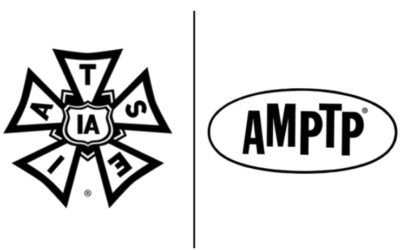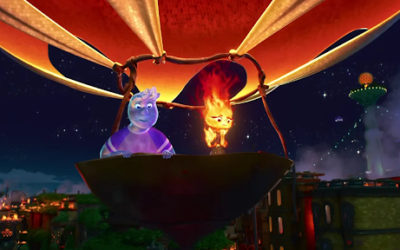Source: The New York Times
The 2021 Cannes Film Festival seemed to have a lot more on its shoulders than previous festivals, in large part due to how much lost ground it has had to make up for. After the 2020 festival had to be cancelled as a result of the ongoing COVID-19 pandemic, many of the film premieres and events that were originally scheduled for that year had to be postponed until they could take place in the safest environment possible. As it turns out, that wait extended to well over a year, and the festival, normally being set in May of any calendar year, had to instead be dated for the days between July 6th and July 17th of this year. However, if one were to ask any person fortunate enough to attend the festival, they would most likely tell you that it was well worth the wait, for the 2021 Cannes Film Festival saw the debut and exhibition of some of the most impressive works of cinema the world has to offer.
As is the case for any film festival, there were several different juries viewing and judging the numerous films submitted and approved for screening, each consisting of some of the industry’s most talented individuals who were fortunately able to make their way to Cannes, France and do their part to determine which films were the best of the best. Many of these juries focused their efforts onto one type of film in particular, ranging from the independent International Critics to the Cinefondation and Short Films juries. It’s the Main Competition jury, however, that stands out as arguably the most significant of the bunch. Tasked with deciding which films and individuals would receive the festival’s most prestigious awards, the highest accolade being the highly coveted Palme d’Or, this year’s Main Competition jury was made up of some of the most respected figures of international cinema, from well-known American names like actress Maggie Gyllenhaal and director Spike Lee (who was named Jury President, a position he was originally given for the previously scheduled festival before its cancellation) to global icons like French-Sengalese filmmaker Matti Diop and Kleber Mendonça Filho from Brazil.
Competing in the Main Competition were a total of twenty-four films of which their origins are spread across the globe, many of them hailing from the festival’s native France and its surrounding neighbors while others came from as far as Japan and Morocco. One film in particular, Thai director Apichatpong Weerasethakul’s “Memoria”, had the involvement of six different nations – China, Colombia, France, Germany, Mexico, and of course Weerasethakul’s native Thailand – in its production. As one of two films to receive a Jury Prize from the festival (the other being Israeli/French/German co-production “Ahed’s Knee” from Israeli filmmaker Navad Lapid), it’s safe to say that the collaboration between all of these different nations had paid off to great success.
Those wondering whether or not there were any American films being included in the Main Competition can rest assured knowing that there were indeed three different films coming from the United States that had vied for one of the film’s many desirable accolades. These films were “Flag Day”, directed by Academy-Award winning actor Sean Penn, “The French Dispatch” (one of several films originally scheduled to premiere at the 2020 festival), from Wes Anderson of “Isle of Dogs” and “The Grand Budapest Hotel” fame, and “Red Rocket”, the latest cinematic work to be created by “The Florida Project” director Sean Baker. Although none of these films would end up receiving any awards, most of them were still met with generally favorable reception, and could very easily remain in the spotlight as major awards contenders should they continue to generate such acclaim.
Not all of the films chosen for the festival were submitted with the intention of competing for awards, though for many of their creators, the opportunity to screen their work at one of the world’s most esteemed film festivals is enough of a prize. Here in the Out of Competition category, one could find even more noteworthy titles hailing from the United States, including the Todd McCarthy action-drama “Stillwater” and Todd Haynes’ documentary “The Velvet Underground”. Still, even among the films screened out of competition, those made outside the States continue to dominate. The majority of these films were made in France (including “Bloody Oranges” and festival closer “OSS 117: From Africa with Love”), although others originate from places farther out in the world, including “Emergency Declaration” from South Korea and the animated “Where is Anne Frank” from Israel.
Still, for many, it’s the films that were eventually honored with one of the many major awards handed out by the festival that are expected to attract the most attention over the next couple months (if not longer). Leos Carax was given the accolades for both Best Actor and Best Director for his film “Annette” (the film that had been given the honor of opening the festival), while Norwegian actress Renate Reinsve was named Best Actress for her performance in “The Worst Person in the World”, and Japanese screenwriters Ryusuke Hamaguchi & Takamasa Oe were awarded with Best Screenplay for their work on “Drive My Car”. Receiving the Grand Prix award, the second most highly regarded of the festival’s honors, went to two different films: “A Hero” from Iranian filmmaker Asghar Farhadi, and “Compartment No. 6” from Finland/Estonia/Germany/Russia and director Juho Kuosmanen. Only one film, however, could go home with the Palme d’Or, and that film was the French/Belgian film “Titane” from director Julia Ducournau, the second female director (as well as the first directing on her own) in history to receive the award.
It may have taken over a year for the Cannes Film Festival to make a complete comeback, but that wait has seemingly made the festival even more exciting and notable than it might have been under normal circumstances. It’s not currently known exactly what the future has in store for the festival’s many great films, but it’s good to know they are all at the very least off to a great start.




